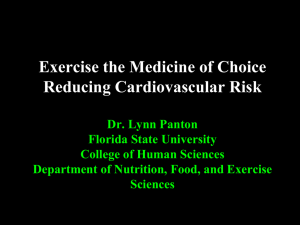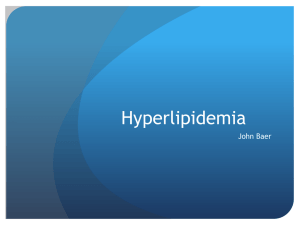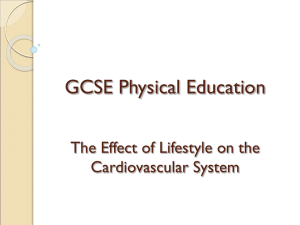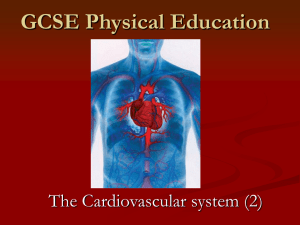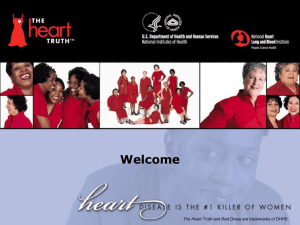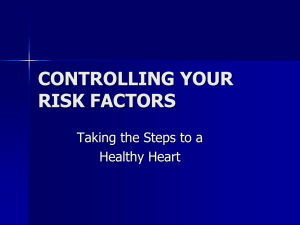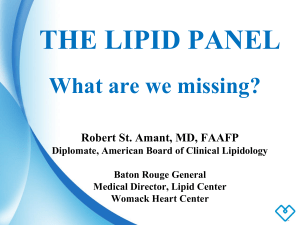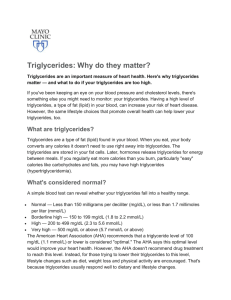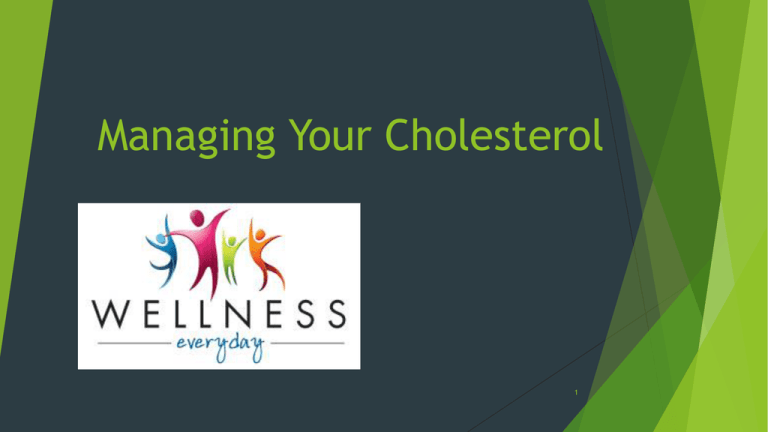
Managing Your Cholesterol
1
What is Cholesterol?
A waxy substance – technically a sterol (unsaturated steroid
alcohol)
75% of your cholesterol is made in your liver, the rest is absorbed
from food
Cholesterol travels in particles called lipoproteins: high-density
lipoproteins (HDL) and low-Density Lipoproteins (LDL)
2
Where does Cholesterol come from?
The Liver
Makes Cholesterol and secretes it into the blood
Regulated by receptors in the liver
Genetics
genetic predisposition for familial hypercholesterolemia
Diet
High saturated fat intake
3
Types of Cholesterol
HDL considered the 'good'
cholesterol
LDL considered the ‘bad'
cholesterol
Contains a higher level of protein
than cholesterol
Higher level of cholesterol than
protein
HDLs transport cholesterol from
the tissues of the body to the liver,
so the cholesterol can be
eliminated in the bile.
LDLs tend to stick to damaged or
inflamed areas of blood vessel
walls and form plaque buildup
The higher the LDL cholesterol
level, the higher the risk of
coronary artery disease.
The higher the HDL cholesterol
level, the lower the risk of
coronary artery disease.
4
5
What are Triglycerides?
Triglycerides are a type of fat (lipid) found in your blood
Your body converts any calories it doesn't need to use right away into
triglycerides
Triglycerides are stored in your fat cells
Hormones release triglycerides for energy between meals
Regularly eat more calories than you burn will raise triglycerides and increase
fat storage
6
What is the difference between
Cholesterol and Triglycerides?
Recommended rang is below 150.
Triglycerides store unused calories
Cholesterol used build and repair cells
High triglycerides are often a sign obesity and metabolic syndrome
High triglycerides can be a sign of poorly controlled type 2 diabetes, low
thyroid hormones (hypothyroidism), liver or kidney disease
High triglycerides could also be a side effect of taking medications (beta
blockers, birth control pills, diuretics, steroids or some chemotherapies).
7
Why do we need Cholesterol?
Your body uses cholesterol to make:
Vitamin D
sex hormones (testosterone, estrogen, progesterone)
Stress hormones (cortisol)
bile acids for digestion
Contributes to normal membrane function of nerve cells in the
brain
Serves as an antioxidant (Neuroprotective)
8
Current Recommendations
9
How can we control cholesterol?
Diet:
Minimize sweets and refined carbohydrates (i.e.: white bread, candy).
Excess sugar increases triglyceride levels contributing to cholesterol production.
Increase consumption of healthy fats
Consume carbohydrates with proteins and fats to slow breakdown.
Reduce portion sizes to control calorie intake.
Increases satiety, reduces insulin response
helps maintain normal weight and sugar metabolism
Increase Fiber intake
Exercise:
Physical activity increases cellular energy needs
Increases ration of good to bad cholesterol
Stress Reduction:
Reduces stress hormone (cortisol) response, reducing blood pressure and blood sugar.
Medication and/or supplements
10
*same as blood sugar regulation
Healthy Fats
11
Hidden Dangers High Cholesterol
The incubation period for this disease can be up to 10 to 20 years.
Metabolic disruptions are present long before physical symptoms.
Reduces overall quality of life feelings of wellbeing.
Accelerates development of other health issues: hypertension,
heart disease, dementia.
12
*same as blood sugar regulation
Complications of long term
elevated Cholesterol
13
14

